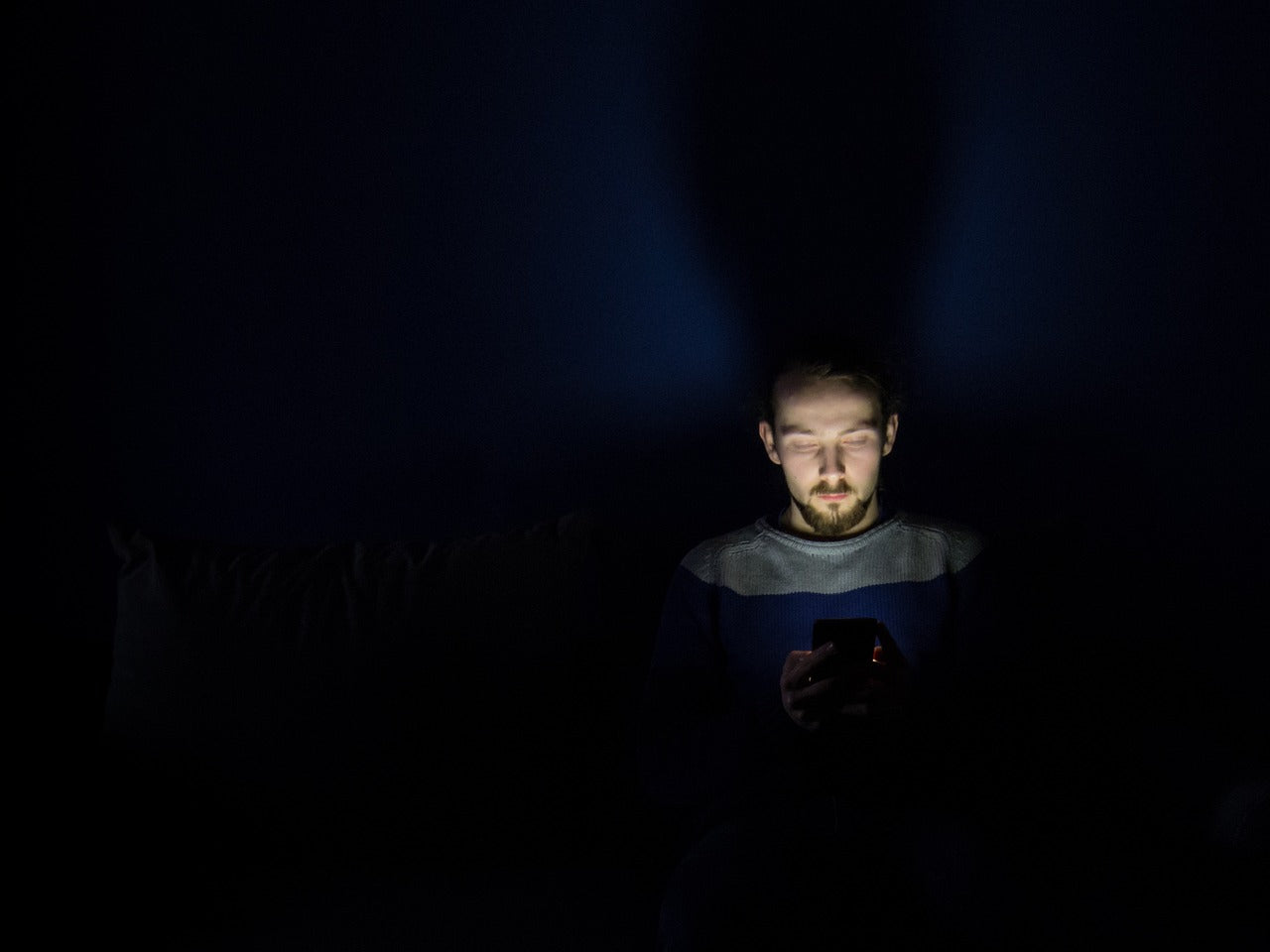Free U.S. Shipping On Orders Over $150

Sleep and Technology: How Screens Affect Your Sleep Quality
Posted on
For many of us, screens have become a normal part of our bedtime routine. We go from watching something on TV right before going to bed to browsing on our phones while in bed.
All this nighttime screen time is bad for sleep. Using screens right before bed has been linked to insomnia and other sleep difficulties, especially
3 Ways Screens Affect Sleep Quality
1. Light Delays Sleep Onset
Many processes in the body operate on a 24-hour circadian rhythm. This internal clock is mostly governed by light and darkness.
When it gets dark in the evening, your body begins to get ready for sleep by triggering the release of the sleep hormone, melatonin. This is what makes you sleepy.
Most electronics, including TVs, smartphones and tablets emit blue light which is closely related to sunlight. Exposure to blue light interferes with the circadian rhythm and delays or reduces melatonin production.
Staring at a screen an hour or two before bed can make it harder to fall asleep, leading to reduced sleep time and symptoms of sleep deprivation. Over time, you could develop chronic insomnia.
By the way, turning on night mode doesn't fix the problem. Any kind of light will still interfere with your sleep.
2. Screens Are Stimulating
The other problem with screens before or at bedtime is not the screens themselves but what’s in them. Most of the things we do online are highly stimulating, whether it is playing a game or scrolling through twitter or Instagram.
They stir up emotions, both good and bad, at a time when we should be calming down and getting ready to sleep. Going online can also increase your level of stress or anxiety and interfere with your sleep quality.
Even something as simple as checking email or chatting with a friend can keep your brain too alert to sleep.
3. Screens Can Be A Distraction from Sleep
Finally, screens and the gadgets themselves can distract us from sleep. Just having your smartphone by the bedside is enough to distract you. That’s why experts recommend keeping your phone completely out of the bedroom.
Even if you are not tempted to pick up the phone and start browsing, calls and notifications can keep you from sleeping or rouse you from sleep. If you are one of those people who struggle to go back to sleep, this can be a huge problem.
Having a TV in the bedroom is also a bad idea especially if you like sleeping with it on.
How to Keep Screens From Messing With Your Sleep
The best solution is to turn off and put away screens an hour or two before bedtime. That’s why having a bedtime routine is so important.
When you know what time you’ll sleep, you can plan to turn off screens well ahead of time. This includes your phone, tablet, Kindle and TV. Find another pre-bedtime activity that doesn't involve screens like reading, meditation, journaling and so on.
Turning down screen brightness or turning on night mode can help feel calmer in the evening, but it is not a substitute for completely turning off screens as you approach bedtime.
To keep your screens from becoming a distraction when you are trying to sleep, it’s best if they stay out of the bedroom. Get an old fashioned alarm clock if you use your phone as a morning alarm.
If you like sleeping to relaxing sounds on your phone, get a pair of wireless sleep headphones and put the phone far away from the bed. Even better, buy a sleep sound machine and leave the phone in another room.
If you have to keep your phone in the bedroom, consider turning it off or switching on airplane mode. Turning on ‘do not disturb’ can also prevent calls and notifications from disrupting your sleep. You can exempt specific numbers in case of an emergency.
Quick links
Contact
6063 Hudson Road #160
Woodbury, MN 55125
Yo@hercLeon.com
Leave a comment: